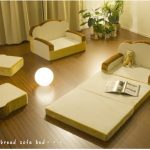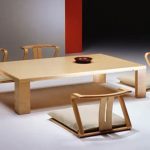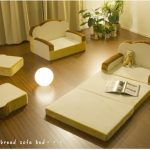As an Amazon Associate I earn from qualifying purchases.
Japanese furniture design is renowned for its exquisite craftsmanship, attention to detail, and minimalist aesthetics. Rooted in centuries-old traditions, Japanese furniture reflects a deep appreciation for nature, simplicity, and functionality.
One of the most distinctive features of Japanese furniture design is its focus on clean lines and natural materials. Traditional Japanese furniture is often made from high-quality woods such as cedar, cypress, or oak, and is meticulously crafted to highlight the natural beauty of the materials. The use of wood in Japanese furniture design is not only aesthetically pleasing but also serves a functional purpose, as wood is a durable and long-lasting material.
Another key aspect of Japanese furniture design is its minimalist aesthetic. Japanese furniture is characterized by its simplicity and lack of ornamentation, with a focus on clean, uncluttered lines and a sense of balance and harmony. This minimalist approach to design is deeply rooted in Japanese culture, where simplicity and understatement are highly valued virtues.
Japanese furniture design also prioritizes functionality and practicality. Many traditional Japanese furniture pieces are designed to serve multiple purposes or to be easily folded or stored away when not in use. For example, Japanese futons can be rolled up and stored away during the day to maximize space in a small room, while traditional Japanese tea tables often feature adjustable heights to accommodate different uses.
In addition to its functional and aesthetic qualities, Japanese furniture design is also highly influenced by the principles of wabi-sabi, an aesthetic worldview that values imperfection, impermanence, and simplicity. Wabi-sabi encourages an appreciation for the beauty of natural materials and the passage of time, as well as a sense of authenticity and humility in design.
Overall, Japanese furniture design is a true art form that combines masterful craftsmanship, minimalist aesthetics, and a deep respect for nature and tradition. Whether it be a simple tea table, a beautifully crafted chest of drawers, or an elegant shoji screen, Japanese furniture reflects a timeless elegance and a profound appreciation for the beauty of simplicity.
Amazon and the Amazon logo are trademarks of Amazon.com, Inc, or its affiliates.
 yonohomedesign.com Garden and Interior Design Ideas
yonohomedesign.com Garden and Interior Design Ideas

















